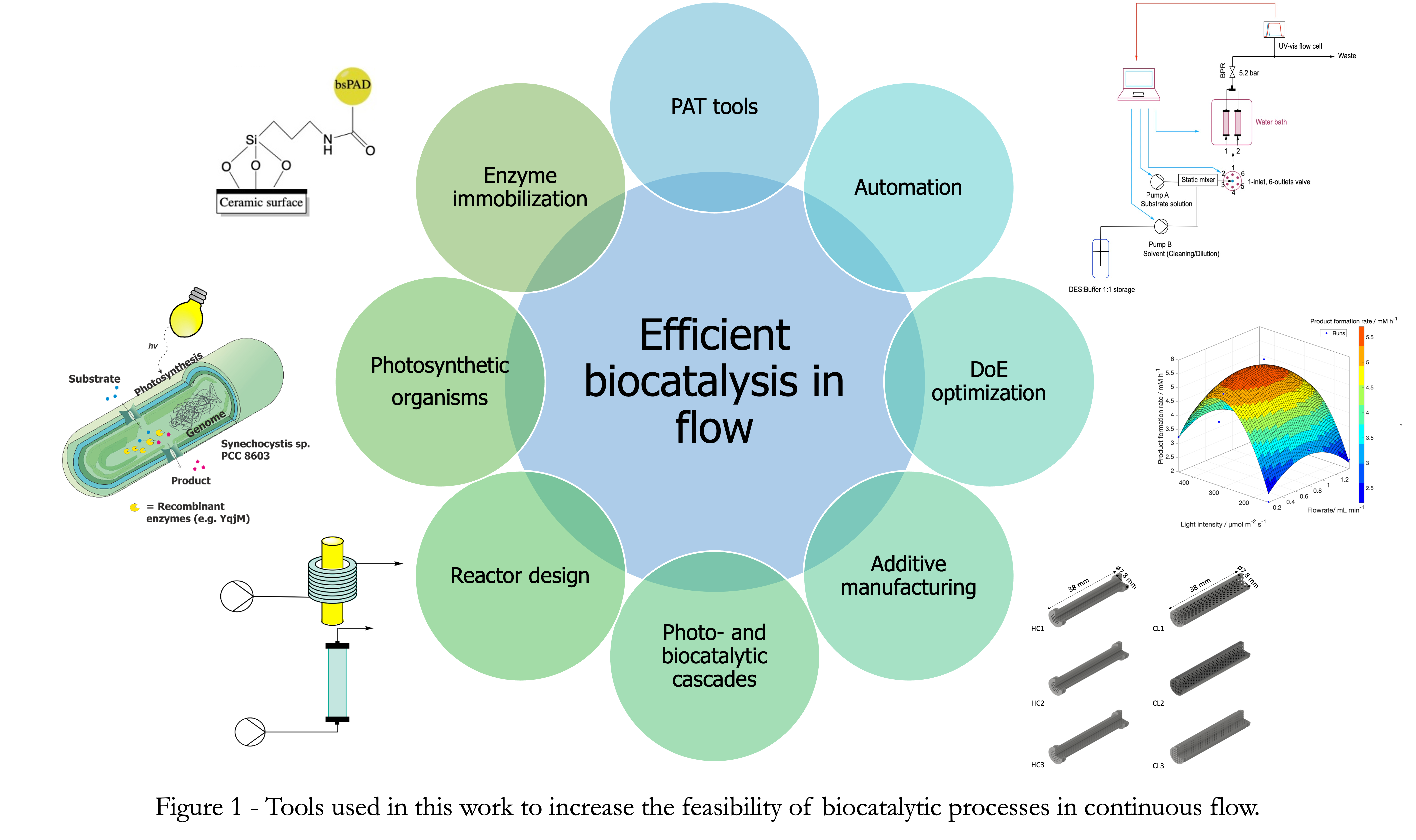2023 AIChE Annual Meeting
(701d) Innovative Applications for Effective Biocatalysis in Continuous Flow
Authors
In this work, the design of continuous, inexpensive, and stable biocatalytic processes for the synthesis of fine chemicals will be discussed for different applications (Figure 1). In the first part, the design of an automated process to evaluate the efficiency of immobilized enzymes on 3D printed supports will be discussed.[1] The process was automated via a Python-based application to identify the optimal operating conditions. The process demonstrated excellent space-time yield (STY) (39.21 g product/L·h) and no leaching of the immobilized enzyme, indicating that the designed supports are ideal for biocatalytic applications.
In the second part, the development of custom-made flow processes to aid in the transition from batch to continuous mode for photo-biocatalytic reactions will be discussed.[2] Two separate photo-bioreactors have been designed and optimized for carrying out light-driven biotransformations in cyanobacteria. The presented flow processes offer higher STYs compared to batch (up to 14.4 g/L·h in the coil reactor against 0.4 g/L·h in batch), and they are simple to construct and scale, rendering them a workable choice for modular and scalable systems.
Lastly, a multistep continuous process will be presented, that combines photo- and biocatalysis to obtain trifluoromethyl-functionalized molecules, which are relevant for the pharmaceutical industry. The process involves the use of green solvents, biocatalyst immobilization, and cofactor regeneration to increase the sustainability of the reaction.
To conclude, combining established chemical engineering technologies with greener solutions such as biocatalysis and photocatalysis is necessary to develop sustainable processes and change the way fine chemicals are produced.
[1] A. Valotta, M. C. Maier et al., J Flow Chem 2021, 11, 675â689.
[2] A. Valotta, L. Malihan-Yap et al., ChemSusChem. 2022, 15, e202201468
